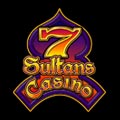 |
Your Portal of Betting... Learns how to win in casino games Tricks, games, betting systems, rules, casinos |
| |
| Home |
| Casinos Online |
| Tricks |
| Gambling Tips |
| Free cash bonus |
| Sports Betting Rules |
| Sports Betting Strategy |
| Business |
| Forex info |
| Webmasters |
Strategy Systems and Technical of Bet, Learns how to win in casino gamesThe foreign exchange market (forex, FX, or currency market) is a form of exchange for the global decentralized trading of international currencies. Financial centers around the world function as anchors of trading between a wide range of different types of buyers and sellers around the clock, with the exception of weekends. The foreign exchange market determines the relative values of different currencies.[1] The foreign exchange market assists international trade and investment by enabling currency conversion. For example, it permits a business in the United States to import goods from the European Union member states especially Eurozone members and pay Euros, even though its income is in United States dollars. It also supports direct speculation in the value of currencies, and the carry trade, speculation on the change in interest rates in two currencies.[2] In a typical foreign exchange transaction, a party purchases a quantity of one currency by paying a quantity of another currency. The modern foreign exchange market began forming during the 1970s after three decades of government restrictions on foreign exchange transactions (the Bretton Woods system of monetary management established the rules for commercial and financial relations among the world's major industrial states after World War II), when countries gradually switched to floating exchange rates from the previous exchange rate regime, which remained fixed as per the Bretton Woods system. The foreign exchange market is unique because of
As such, it has been referred to as the market closest to the ideal of perfect competition, notwithstanding currency intervention by central banks. According to the Bank for International Settlements,[3] as of April 2010, average daily turnover in global foreign exchange markets is estimated at $3.98 trillion, a growth of approximately 20% over the $3.21 trillion daily volume as of April 2007. Some firms specializing on foreign exchange market had put the average daily turnover in excess of US$4 trillion.[4] The $3.98 trillion break-down is as follows:
Winners at Gcasino.info
The first time I visited Gcasino.info I thought it was one of those many sites offering tips and ticks that are supposed to make you win lots of money in just a few seconds, and you immediately realize that they actually don't work. But it's true: in my first week applying the advices posted in this site, I won 500$. At the beginning I find it a little difficult to follow the instructions exactly... They're not easy, but once you get used to them, it's not so complicated. The best part is that now I can buy and do those things I always wanted but never had enough money to spend on! Michael J. m****d3**@yahoo.com
|


